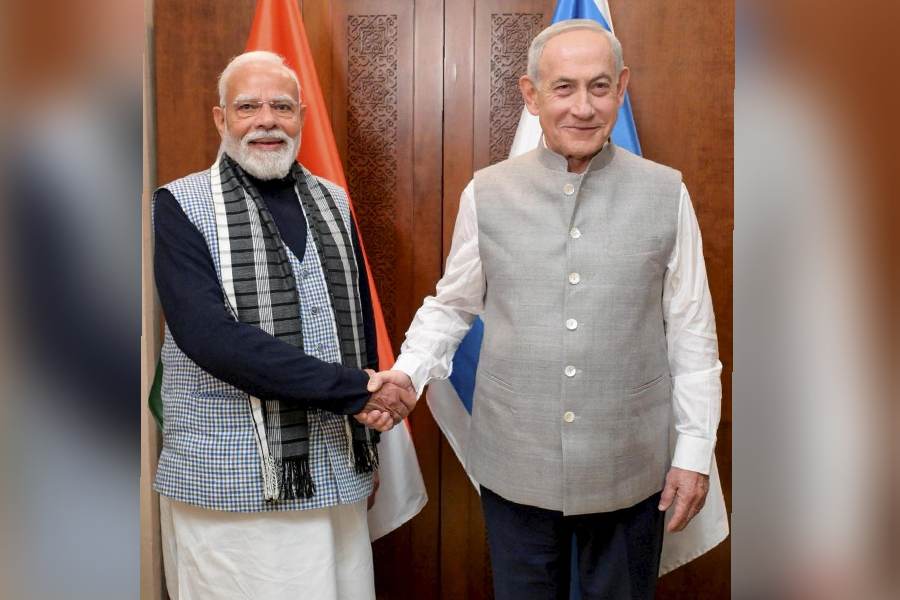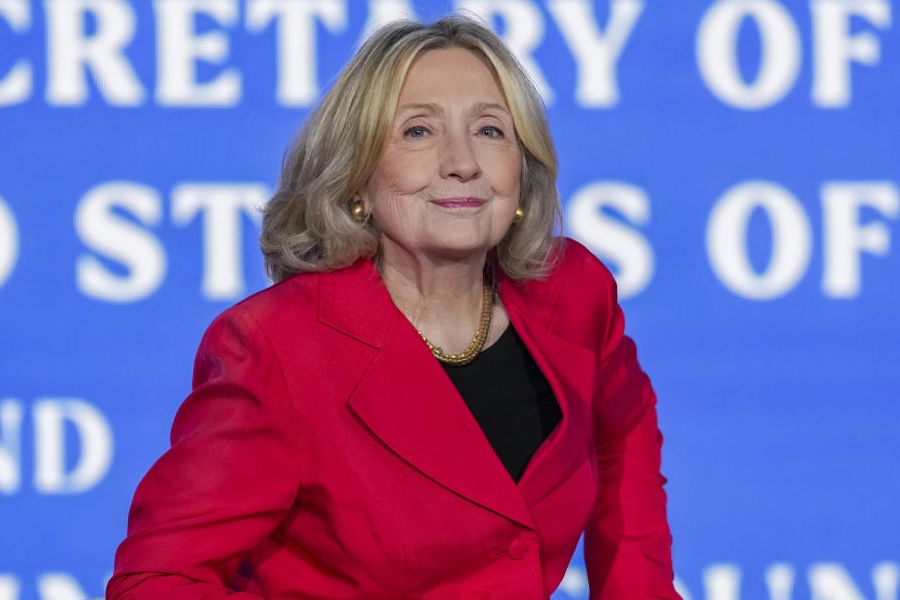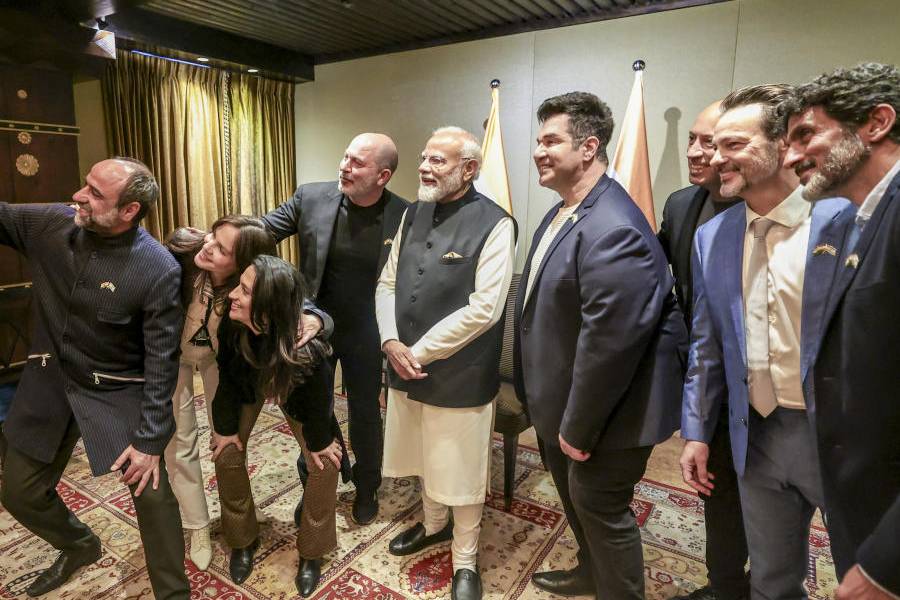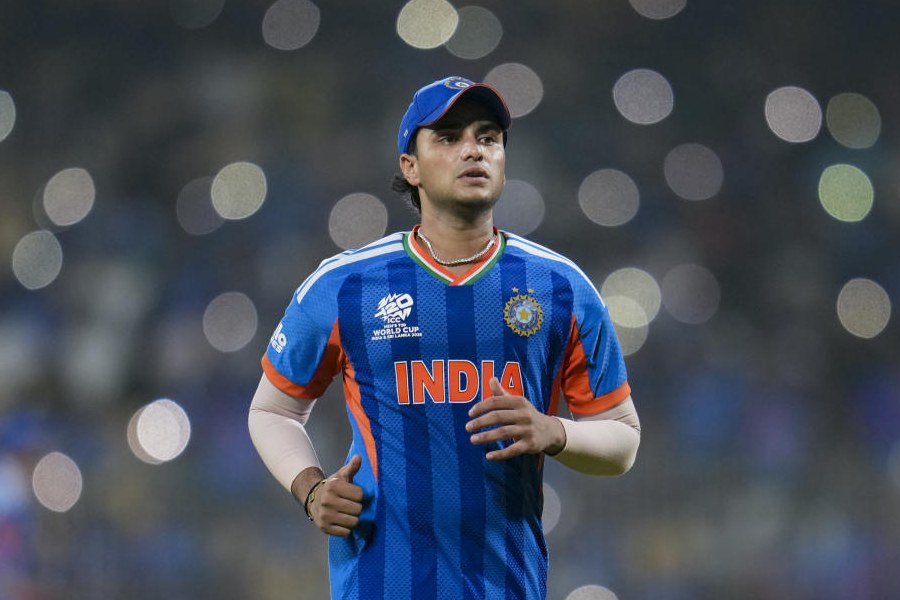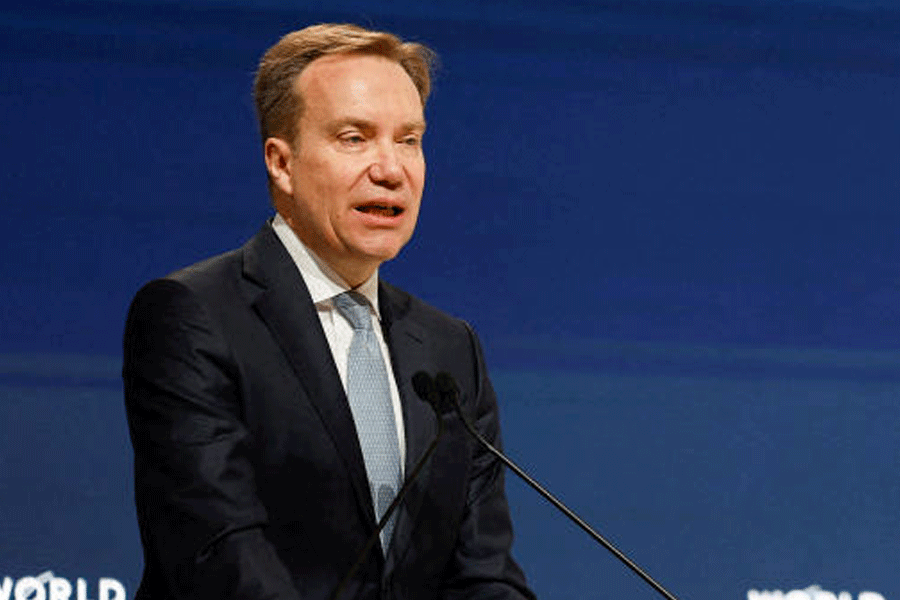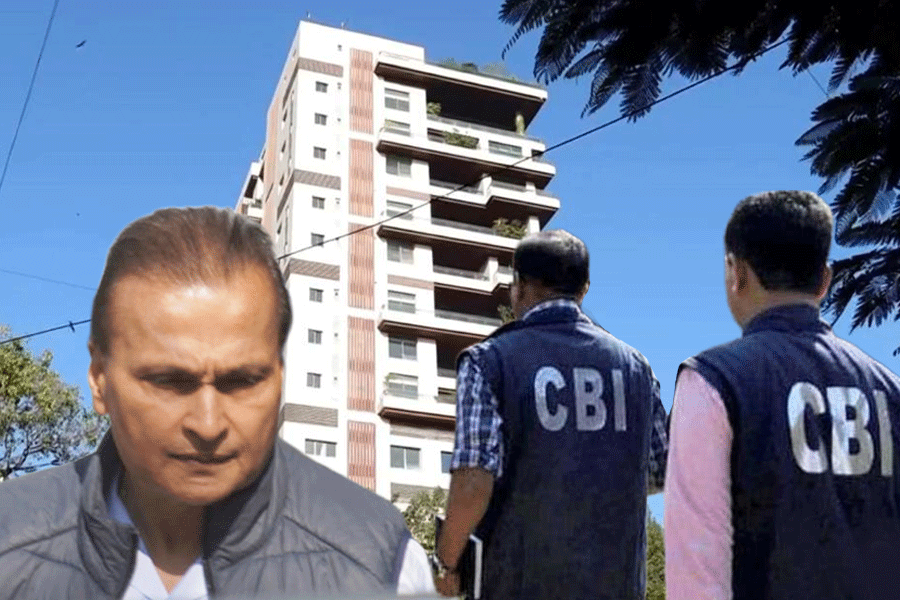Unsafe drive
Sir — If you thought work from home was ruining work-life balance, wait till you hear what Mercedes-Benz has done. It has teamed up with Microsoft to let drivers join Teams meetings using an in-car camera and dashboard display. This is a massive road safety violation — it allows reading of messages and replying to them even when the car is running. If multitasking behind the wheel becomes the new normal, perhaps driving tests should include performance reviews and scheduling calendar invites. After all, what can be more productive than making a spreadsheet at 80 kilometres per hour.
Prasun Kumar Dutta,
West Midnapore
Beyond gender
Sir — Saying that the end goal of men’s rights activism is to denounce feminism is an oversimplification (“Hollow cry”, July 28). I am not a proponent of men’s rights activism but I can’t ignore the fallacy that standing up for men hinges on the denuding of the structures of feminism. Rather, it would bolster the structures of feminism more. Feminism is a movement to bring women on a par with men. Men’s rights movement should lead to laws in India being gender-neutral. It is vital to note that sexual harassment, while being gender-biased, is not gender-specific and can happen to anyone.
Dhruv Malpani,
Indore
Sir — Men’s rights groups claim they are denied basic rights under the law. That claim collapses under scrutiny. The Indian legal system already assumes a level playing field between men and women. Human rights frameworks protect all citizens,
including men. What is missing is not men’s protection but the imagination to see that structural privilege is not the same as injustice. When male discomfort becomes a rallying cry, it is often discomfort with equality itself.
Siddharth Kulkarni,
Pune
Back home
Sir — The Piprahwa relics, including 349 gemstones linked to Buddhist history, have finally returned to India after over a century abroad. This was not a routine case of cultural diplomacy. It involved public outrage, international legal pressure, and, ultimately, a private purchase by the Godrej family. That a businessman stepped in where the State could not act directly says a great deal about the constraints India faces in reclaiming its history. This is a reminder that India’s legal frameworks are still not strong enough to reclaim heritage taken during colonial rule. The 1972 Antiquities Act has no retroactive strength. Without ownership claims recognised internationally, moral appeals hold limited weight.
Zakir Hussain,
Kazipet, Telangana
Star in the city
Sir — Lionel Messi’s proposed visit to India this December will bring immense joy to fans across the country. Calcutta being chosen as the first stop is fitting given its long-standing love for football. The plan includes events with schoolchildren, cultural celebrations, and even a match alongside Sourav Ganguly and others. If everything proceeds as scheduled, it will not only draw record crowds but also set a precedent for how India welcomes sporting icons beyond cricket.
Indranil Sanyal,
Calcutta
Quiet rhythms
Sir — The piece on the local food trail of McLeodganj captures not just taste but also the rhythm of a small town (“Ahead: Sheep at Ama’s and luminous chicken”, July 27). Deadlines truly do not stand a chance against Ama’s kitchen. Neither does fatigue. The quiet moment when a sermon turned out to be a soda request said more than any guided tour of Tibetan Buddhism. Real faith often lives beside appetite. The piece captures a contradiction without forcing meaning onto it. That is its strength.
Lalitha Joseph,
Kochi


